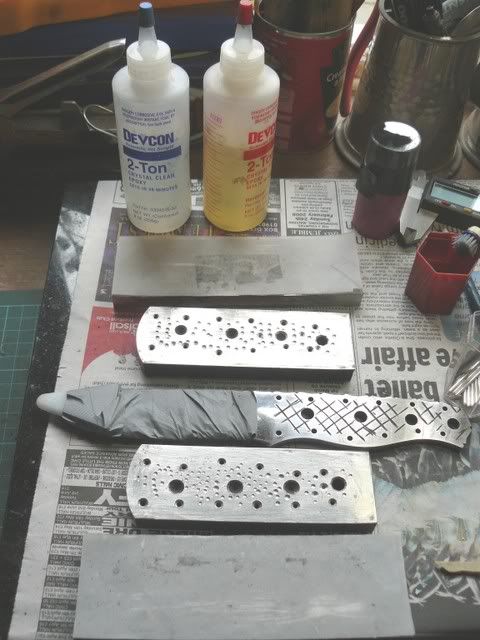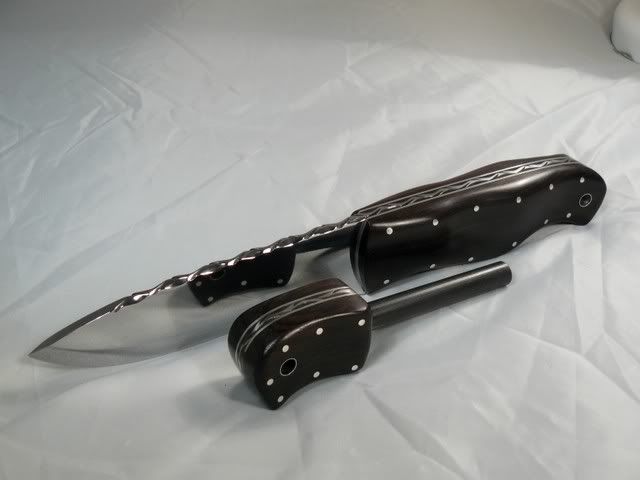CDHumiston
KNIFE MAKER
The last 3 knives I have made have had problems with the scales falling off under minor pressures.
Knife 1: 440C Stainless Madrone wood scales and Devcon 10 minute epoxy
Knife 2: D2 Tool steel Yellowheart wood scales and JB Weld epoxy
Knife 3: A2 Tool steel Green G11 scales and Tracy's 30 minute epoxy
I think I must be prepping the metal wrong or something. I may be polishing it too much on the tang. All three blades are fixed full tang knives.
Do I need to really rough up the surface of the metal before attaching scales?
Any help will be appreciated.
Thanks,
Knife 1: 440C Stainless Madrone wood scales and Devcon 10 minute epoxy
Knife 2: D2 Tool steel Yellowheart wood scales and JB Weld epoxy
Knife 3: A2 Tool steel Green G11 scales and Tracy's 30 minute epoxy
I think I must be prepping the metal wrong or something. I may be polishing it too much on the tang. All three blades are fixed full tang knives.
Do I need to really rough up the surface of the metal before attaching scales?
Any help will be appreciated.
Thanks,





